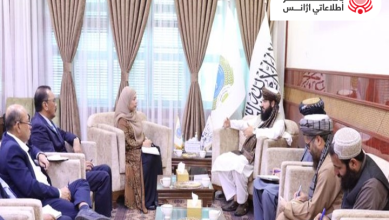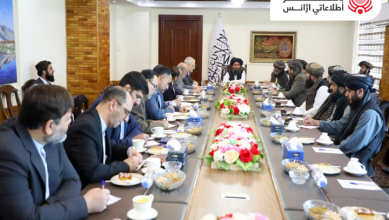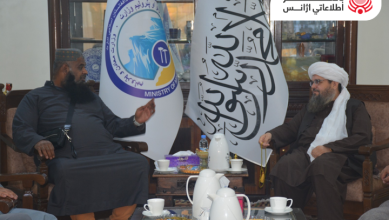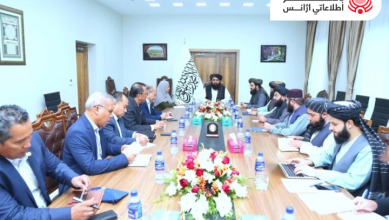
Sunday September 27, 2015
Kabul (BNA) Excellences Co-Chairs, His Excellency, Secretary General Ban Ki-moon, Honorable Heads of States and Governments, Ladies and Gentlemen, It is a great honor for me to represent my country at this historic summit.
At the outset, allow me to congratulate you for convening this gathering and to express my sincere appreciation to the outgoing co-chairs for their leadership and hard work and welcome the new co-chairs. The 2030 Agenda for Sustainable Development offers a compelling vision, promising peace and prosperity to the peoples of the world through global partnerships to ensure that we live and manage the resources of our planet in a sustainable manner. H.E. President Ghani asked me to convey to you that the agenda is a synthesis of the past efforts, as articulated in key UN conferences, and an inspired leap of aspiration into the future. We, therefore, pay tribute to the work of several generations of thinkers and practitioners who devoted their lives to the understanding and changing of the economic, social and environmental dimensions of development. The MDGs, sadly yet to be met by some countries, focused our attention on result-oriented development, forcing governments and their developmental partners to think through the linkages between policy, delivery, measurement, monitoring, and accountability and voice in public resource mobilization and management.
Yet, as President Ghani reminds us: the unfinished MDG agenda in the poorest countries and the unintended consequences of focusing on some goals requires that we pay careful attention to learning and acting on the lessons drawn. Among those lessons is that while the UN system does an excellent job in setting global agendas, its development machinery, requires major transformation if it is to be a catalyst for the 2030 Agenda. In the case of nations such as Afghanistan, securing agreement on peace before reorienting resources from political and physical security to human security is essential. The call to action in the 2030 Agenda requires attention to the missing Ps of price and power. To deliver on the Agenda, we need to understand the costs and the trade-offs necessary to ensure sustainable development. The five Ps of the 2030 Agenda, however, require systematic attention to regional cooperation and coordination. Were regional barriers to trade and transit between Central and South Asia – to take just one example – to open up, tens of millions of people will be lifted from poverty to living with dignity. Even more significantly, the specter cast by terrorism over our lives will be lifted were there to be true and meaningful cooperation in the arena of peace and security.
Distinguished Co-chairs, Afghanistan, as a land-locked, least developed, and conflict affected country, will benefit profoundly from the new Agenda 2030. In the past 14 years, some of our gains have suffered from a lack of consolidation, continuity and sustainability. Afghanistan began to pursue its MDGs almost half a decade later than other member states. Based on our 2005-2015 MDG report we have had a mix achievements and setbacks. While poverty rate has remained constant (around 36%) for several years we have made considerable progress in primary education, gender equality and women empowerment, child and maternal mortality rates have been reduced. However, despite these achievements, security and instability, as well as equal access to basic health services for all citizens remain as key challenges to our sustained economic growth.A big part of Afghanistan’s Transformation Decade (2015-2025) coincides with the 2030 development agenda. Afghanistan will remain committed to developing strategies and policies to integrate our national development agenda with the 2030 development agenda. My Government’s effort to provide villages across the country with a minimum level of basic services for health, education, clean water, and improved agriculture through a Citizens’ Charter – proposed by the President – tops the national development agenda.
Afghanistan has been making strides to become an economic hub in the region and to establish corridors that connect people, goods and resources, and create opportunities for investment, development and economic growth. I am grateful to see in the agenda the importance of implementing special and differential treatment for the LDCs in accordance with World Trade Organization agreements. The adoption of the Addis Ababa Action Agenda was a milestone. We also support interconnectivity with other relevant programs, including the Istanbul Program of Action for Least Developed Countries, the Vienna Program of Action for Landlocked Developing Countries and we agree with the notion that the responsibility of follow-up and review of the implementation of the 2030 Agenda lies primarily with states. Excellences, In conclusion, allow me to conclude by expressing Afghanistan’s firm belief that in order to achieve the ambitious goals of the new agenda, strong political commitment and revitalized global partnership, and cooperation are essential. I would like to reaffirm our strong commitment and dedication to implementing this agenda, and our unwavering efforts in fulfilling all its goals and targets by 2030.
Thank you.




